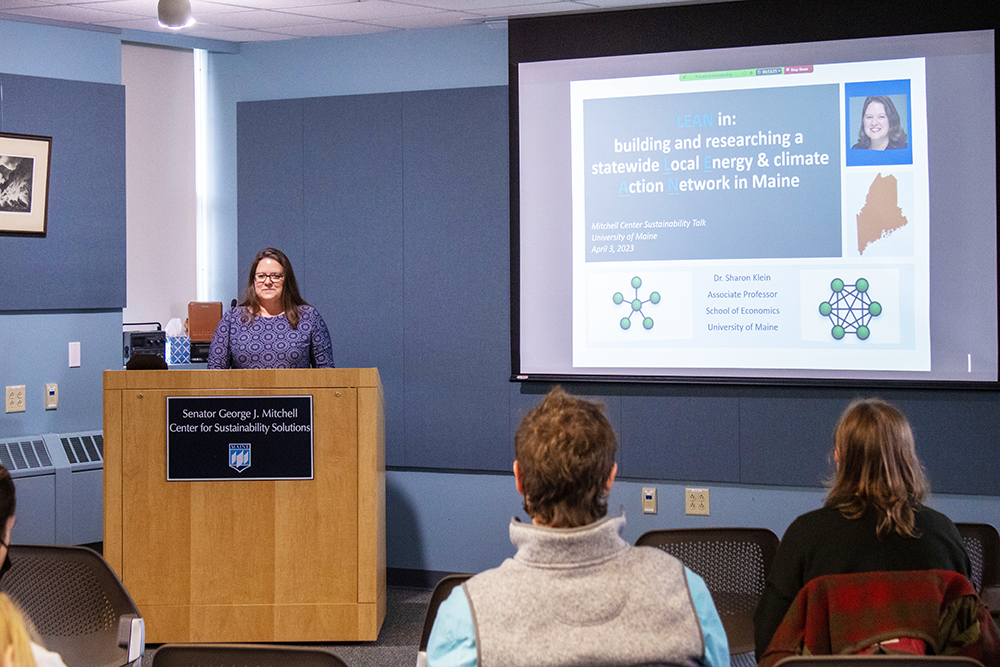On Monday, April 3, the University of Maine’s Mitchell Center for Sustainability Solutions welcomed acclaimed UMaine professor Dr. Sharon Klein to discuss a vision for Maine’s sustainability future — a possible statewide Local Energy and climate Action Network (LEAN).
LEANs are present in states right outside the Maine border, like Vermont and New Hampshire, and they provide education and involvement for community members who want to help protect the planet.
Klein, an associate professor in economics and Mitchell Center Faculty fellow, describes herself as an interdisciplinary sustainable energy researcher and educator. She spends much of her time focused on energy efficiency in a sustainable sense, looking at everything from public policy to environmental engineering.
This research has led her to look at the implications of starting an energy and climate focused network right here in Maine.
Energy efficiency and environmental concerns go hand in hand, something that Klein’s research stresses.
“Energy has so much to do with climate change, and trying to prevent future increases in emissions by reducing energy is a big part of the climate change work that we need to do,” Klein said. “[It is] a network that actively supports on-the-ground projects through various different methods: peer-to-peer learning, information sharing, energy coaching and so forth.”
Vermont’s LEAN is incredibly successful. Klein called it an active and vibrant network of energy committees who are actively trying to lower their environmental impact. The LEAN, called the Vermont Energy and Climate Action Network (VECAN) also puts out a public newsletter dedicated to funding transparency and event opportunities.
When she started doing research on a potential Maine LEAN and talking to government officials, Klein found that there’s support for the organization — the process just hasn’t been started yet. A LEAN couldn’t be put through the Maine government, as governors change every four years and the LEAN is apolitical.
While no official energy network has been established yet, the ideas behind a Maine LEAN are already present, Klein’s work at UMaine being an excellent example.
Through her work with her students, Klein has been able to look at community solar and sustainable energy projects. One example of this is Window Dressers, an insulating window insert company that she worked with when focusing on energy efficiency within buildings.
“I was able to work this into my teaching by getting my students involved in coordinating these window insert building workshops, and then I also was able to research it by estimating the energy and emission savings and some of the social value associated with these workshops,” Klein said.
Elements of LEANs are already here in Maine, especially when individuals like Klein make it their duty to bridge the gap between efficient energy and a healthy environment.
For a recording of the talk, visit https://umaine.edu/mitchellcenter/seminars/spring-2023-sustainability-talks/.








